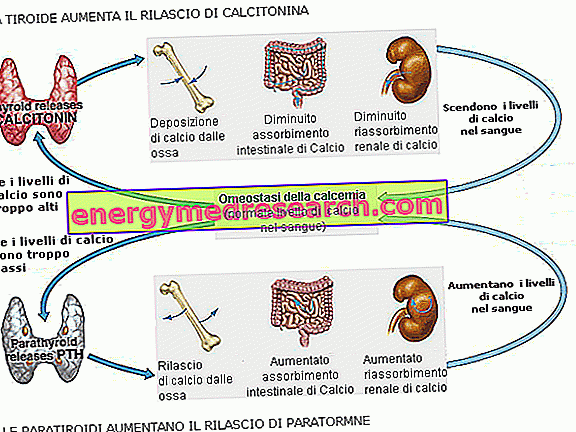
What is Tarceva?
Tarceva is available as white to yellowish round tablets containing 25, 100 or 150 mg of the active substance erlotinib.
What is Tarceva used for?
Tarceva is an anticancer medicine. It is indicated in the treatment of patients suffering from the following diseases:
• non-small cell lung cancer. Tarceva is used when the tumor is at an advanced or metastatic stage (ie when the cancer cells have spread from the original site to other parts of the body), after the failure of at least one previous chemotherapy treatment. Tarceva has not shown advantages in patients with so-called EGFR-negative tumors. "EGFR-negative" means that some receptors (ie epidermal growth factor receptors, EGFR) cannot be detected on the surface of tumor cells or can only be detected in small amounts;
• metastatic pancreatic cancer, in combination with gemcitabine (another anticancer medicine).
The medicine can only be obtained with a prescription.
How is Tarceva used?
Treatment with Tarceva should be carried out under the supervision of a doctor experienced in the use of antineoplastic therapies. For lung cancer the recommended daily dose of Tarceva is 150 mg. For pancreatic cancer, 100 mg of Tarceva should be taken at least one hour before meals or two hours later. If necessary (for example, due to side effects), the dose can be reduced by 50 mg at a time. Pancreatic cancer treatment should be re-evaluated after 4 to 8 weeks if no erythema has developed. The use of Tarceva is not recommended in patients with severe hepatic or renal insufficiency.
How does Tarceva work?
The active substance in Tarceva, erlotinib, is an anticancer medicine belonging to the group of epidermal growth factor receptor inhibitors (EGFR).
Erlotinib inhibits the epidermal growth factor receptors found on the surface of some cancer cells. Consequently, the cancer cell no longer receives the messages necessary for its growth, progression and diffusion (metastasis). In this way Tarceva prevents cancer cells from growing and multiplying.
What studies have been carried out on Tarceva?
The effects of Tarceva were first tested in experimental models before being studied in humans. The main study with non-small cell lung cancer was conducted on 731 patients who had not responded to at least one chemotherapy treatment. The main study on advanced and unresectable pancreatic cancer (which cannot be removed surgically) or metastatic pancreatic cancer, in combination with gemcitabine, was conducted on 569 patients. In both studies, Tarceva was compared with a placebo (substance with no effect on the organism) and the main measure of effectiveness was "average survival" (the time required for 50% of patients to be still alive).
What benefit has Tarceva shown during the studies?
For lung cancer, the median survival in Tarceva-treated patients was 6.7 months compared to 4.7 months in placebo-treated patients. After 12 months, 31.2% of patients receiving erlotinib were still alive, compared with 21.5% of placebo-treated patients. If the results collected in patients treated with Tarceva are examined, depending on the type of tumor, survival estimates were 8.6 months in "EGFR-positive" patients (ie with tumor cells in which they were observed to be carrying the EGFR receptor) compared to 5 months in EGFR-negative patients.
For metastatic pancreatic cancer, the average survival of patients treated with Tarceva was 5.9 months, compared with 5.1 months for patients treated with placebo. However, there was no survival benefit in patients with pancreatic cancer that had not spread beyond the pancreas.
What is the risk associated with Tarceva?
In clinical studies, the most common side effects of taking Tarceva (seen in more than 1 in 10 patients) are rash and diarrhea. Most of the effects observed were not serious and did not require treatment. The most severe diarrhea rashes and accesses occurred in about 5-10% of patients treated with Tarceva and each undesirable effect forced up to 1% of patients to stop treatment. Patients with persistent and severe diarrhea should contact their doctor, as they may be at risk of low blood potassium levels and kidney failure. For the full list of side effects reported with Tarceva, see the Package Leaflet.
Tarceva should not be used in patients who may be hypersensitive (allergic) to erlotinib or any of the other substances. The medicine must also be used with caution if the patient is taking other medicines, including warfarin (used as a blood thinning agent), ketoconazole (used to treat fungal infections), antibiotics (erythromycin, clarithromycin) or St. John's wort (a herbal preparation). For more details, see the package leaflet. It is also advised to quit smoking because smoking can reduce the amount of medicine in the blood.
Why was Tarceva approved?
The Committee for Medicinal Products for Human Use (CHMP) concluded that Tarceva had been effective in treating patients with locally advanced or metastatic non-small cell lung cancer after the failure of at least one previous chemotherapy regimen, even in the absence of a sufficient justification, or data on the use of the drug, in patients with EGFR-negative tumors. The committee decided that Tarceva's benefits outweigh the risks for these types of cancer as well as for metastatic pancreatic cancer. For pancreatic cancer, the committee concluded that, when prescribing Tarceva, doctors and patients had to consider the chances of survival. The committee therefore recommended that it be given marketing authorization.
More information on Tarceva
On 19 September 2005, the European Commission granted Tarceva a marketing authorization valid throughout the European Union to Roche Registration Limited.
For the full version of the evaluation (EPAR) of Tarceva click here.
Last update of this summary: 04-2007.



